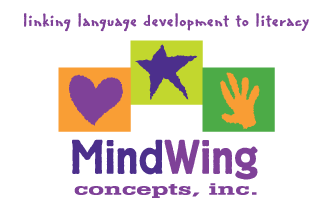Secure Checkout + FREE SHIPPING (U.S. Orders over $60)
Menu
-
- Home
-
About Us
-
The Approach
-
Linking Language & Literacy
-
Professional Learning
-
Learning Resources
-
SHOP
-
Blog
-
- About MindWing
- Our People
- Contact Us
- Your Account
- Login
-
United States (USD $)

Secure Checkout + FREE SHIPPING (U.S. Orders over $60)
Gobble! Gobble! Turkeys and Expository Text
by Sheila Zagula November 09, 2017 2 min read 1 Comment
 In our family, November brings thoughts of sharing Thanksgiving traditions with family and friends. One of these traditions is a turkey dinner including stuffing, potatoes, squash, turnip, cranberry, and pumpkin pie. It is a family time to remember all that we are thankful for, both in the past and present.
In our family, November brings thoughts of sharing Thanksgiving traditions with family and friends. One of these traditions is a turkey dinner including stuffing, potatoes, squash, turnip, cranberry, and pumpkin pie. It is a family time to remember all that we are thankful for, both in the past and present.
I recently have read several articles in our local papers describing encounters between residents and wild turkeys within our state (Massachusetts). I was surprised to learn that wild turkeys once were extinct in our area.
The following is an excerpt from our state website:
“At the time of colonial settlement, the wild turkey was widespread in Massachusetts. Due to habitat loss, turkeys were extirpated from the state and the last known native bird was killed in 1851. In the 1970s, MassWildlife biologists trapped 37 turkeys in New York and released them in the Berkshires. The new flock grew in what was an ideal mix of agricultural and forested lands, and by the fall of 1978 the estimated population was about 1,000 birds. With birds also moving in from adjacent states, turkeys soon ranged throughout most parts of Massachusetts west of the Connecticut River. In-state transplants of the birds, conducted until 1996, continued to expand their range into the central, northeastern, and southeastern parts of the state. In 1991, the wild turkey was named the state’s official game bird. The estimated population now exceeds 25,000 birds!” https://www.mass.gov/service-details/learn-about-turkeys
In addition, the following excerpt from our state’s website gives tips for preventing encounters with wild turkeys: https://www.mass.gov/service-details/prevent-conflicts-with-turkeys
 Not knowing many facts about wild turkeys, my nephew and I came across a book at our local library here in Springfield, Massachusetts, written and illustrated by Jim Arnosky, All About Turkeys. This book and the companion fact sheets referenced above
Not knowing many facts about wild turkeys, my nephew and I came across a book at our local library here in Springfield, Massachusetts, written and illustrated by Jim Arnosky, All About Turkeys. This book and the companion fact sheets referenced above 
 would be ideal to use with the Expository “My Research” Cut–and-Fold Booklet
would be ideal to use with the Expository “My Research” Cut–and-Fold Booklet  (front/back, uncut pages shown at right) found in our “Core” of the Core manual. After reading both, invite students to fill in the booklet with a partner and share their results.
(front/back, uncut pages shown at right) found in our “Core” of the Core manual. After reading both, invite students to fill in the booklet with a partner and share their results.
For each page, the students could write either Book or Fact Sheet at the bottom to document where the information came from; documentation is a great skill to cultivate. Below is a completed sample with pages in order (answers may vary depending on students, information used, and your goals).

Below are two additional past posts from our website that you may find helpful during this month. Whatever your autumn family activities include, enjoy!
Sheila Zagula
Sheila Zagula works with MindWing Concepts in product development, drawing on her expertise and talents as well as many years of implementing the Story Grammar Marker® and related materials. Her teaching career spans thirty-eight years, most recently as literacy coach in the Westfield Massachusetts Public School System. Sheila has experience as an early childhood educator, a teacher of children with special needs, and a collaborative instructor within an inclusion framework serving children in grades K-5.
1 Response
Leave a comment.
Comments will be approved before showing up.

Sheri Hughes
December 10, 2019
This example and tool is fantastic. I am supporting language arts curriculum as an SLP and this would be a perfect addition to our teaching. Thank you for the detailed example. Shows how “doable” this is!!